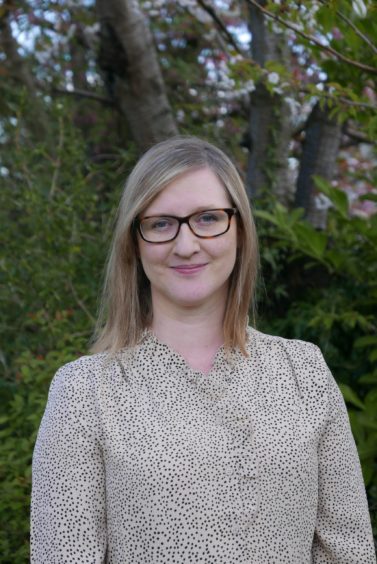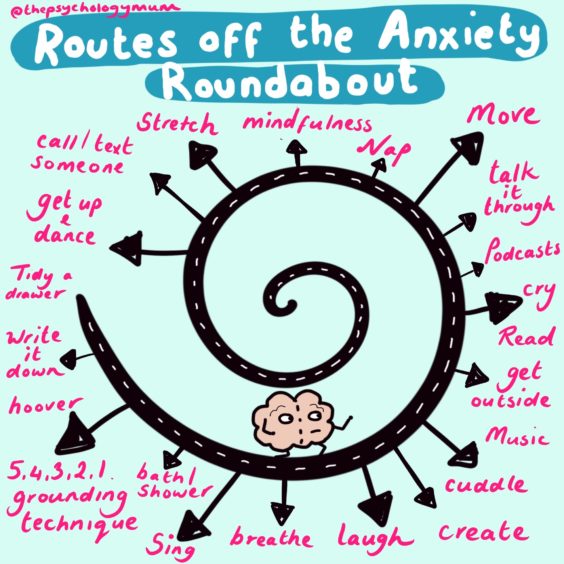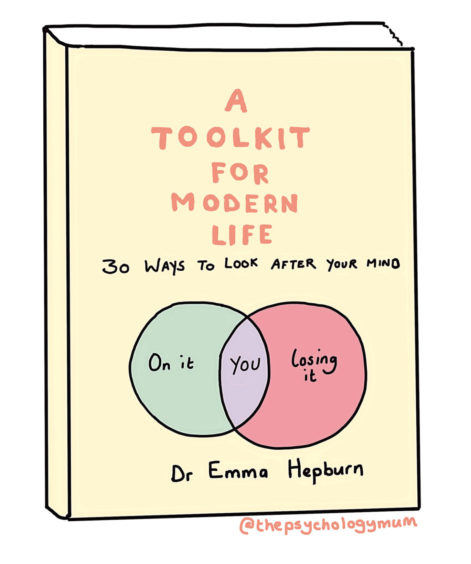“We are more resilient than we give ourselves credit for, and we manage far better than we think we can.”
The tenacity of the human spirit offers a glimmer of light in the darkness, a means of moving forward following the devastating consequences of Covid-19.
It is easy to focus on the symptoms of coronavirus, to be hyper vigilant concerning our physical health.
But alongside monitoring how we feel on the outside, we should also take note of how we’re coping on the inside.
All that is familiar has been stripped away: from the mundane yet now longed-for commute, to the embrace of an elderly relative or friend.
We all need human connection to thrive, but the necessary measure of social distancing and lockdown has left many of us feeling more alone than ever.
On the flip side, you could also be craving solitude; a breathing space beyond the confines of four walls and the challenges of balancing home schooling with conference calls.
Whatever your situation, coronavirus will inevitably leave a mental-health legacy.
Clinical psychologist Doctor Emma Hepburn believes it is more important than ever to check in on your mental health.
For by doing so, we can potentially change the narrative.
The mum of two who works at Aberdeen Royal Infirmary is currently involved in supporting frontline staff.
From a special phoneline to a wellbeing centre, Emma is on hand to make sure fellow NHS workers can discuss and manage the impact on their mental health and wellbeing in the midst of a pandemic.
Prior to the outbreak, she led both group and one-on-one sessions with a wide range of patients from across NHS Grampian.
Outside of work, and what started off as a hobby, has now led to a book deal – plus an impressive online following of more than 46,600 people.
You may know Emma as the Psychology Mum, or the artist behind Brian the Brain.
The comical doodle of a brain has become a means of exploring mental health and how the brain works.
It has clearly struck a chord with people, with some of Emma’s posts attracting hundreds of comments.
Her book, A Toolkit For Modern Life, is due out in September.
Here, she explains the inspiration behind her drawings, and why we can all take control of our mental wellbeing.
I’ve always been interested in how the brain works.
I studied for my undergraduate degree in Aberdeen and my Clinical Psychology postgraduate in Glasgow.
I’ve gone on to work in a range of different positions, and I’m also a lecturer at Aberdeen University.
I’ve worked in maternity services in Glasgow, which included seeing the parents of premature babies. I’ve also worked with asylum seekers and people with brain injuries.
There’s so many different stories from people around the world and their experiences. It always strikes me how resilient people are in the face of stress. People often manage far better than they think they can.
When I tell people what I do for a job, the classic response is usually to ask if I can read their mind.
There has been a significant shift in how people think about mental health though. People previously rarely talked or admitted to mental health difficulties. In part, I think social media has driven the change.
There is still some stigma and as a result people can still experience an element of shame about their mental health, but it’s not seen as something abnormal anymore. I think people are more willing to speak up and recognise that they need help. It’s not so hidden.
Sometimes I see a patient for an hour, or there’s group work. I used to run a group for children with anxiety.
People trust me with their stories, and show so much resilience through really difficult parts of life.
Obviously my job can be difficult. But seeing people change and get better, that keeps me going.
They can function without me, and that’s what we want.
Trust is key, you need to trust the person you are speaking with.
I think becoming a parent has given me more insight into the daily demands that people are facing.
It can be a big challenge to switch off after work. You have to learn how to do it, I’m good at it now. You cannot provide help for others if you don’t look after yourself.
Mental health is an intrinsic, normal part of life, we all have mental health. Most people are adaptable and find ways to get through things, to cope with difficult situations.
I wanted to get my work out to more people, to go beyond the clinic room and normalise emotions.
You can provide evidence-based information about mental health, it can be a bit wordy though. I wanted to make it engaging and memorable, so I started these drawings in 2018.
It was a hobby more than anything and it just went from there. It helps people and it’s also creative. I love doing it, so it’s a double whammy.
The drawings are memorable, I find they can have more impact than lots of words.
I get people to contribute to them as well, it’s a way of capturing a collective experience.
I was approached to write a book all because of Instagram, so it has been a pretty exciting time.
When it comes to my own mental health, I try to get the foundations right. So that means sleep, exercise, eating regularly and hydrating. If you don’t do that, the cracks begin to show.
I think mental health has come to the forefront more than ever. Often we blame or shame ourselves for how we feel, we think we should be feeling differently or doing better.
Everybody’s brain is different and everybody’s situation is different, experiences are different. Combine these together, and it means that how everybody will feel in response to the current situation will be slightly different.
Different doesn’t mean wrong. Differences are the norm with emotions, because differences are the norm with humans.
Five tips for looking after your mental health
by Doctor Emma Hepburn
1. Don’t forget the foundations
It can be very easy to dismiss or overlook the basics of life, including sleep, regular meals, hydration, exercise and rest, especially when stressed.
But our mind, brain and body are intrinsically linked, and these things have a fundamental impact on our emotions and how we feel.
Cracks in the foundations can quickly grow into something bigger and impact on our mental health so take time to ensure you are eating, hydrating, sleeping, resting and moving.
2. Make friends with your emotions (and not just the good ones)
Emotions are an inevitable part of our lives, and as humans we need emotions as they help us with a range of functions, including to identify where to take action, to set goals, to make decisions and to create connections.
But not all emotions feel nice, and often we try to ignore or push these emotions away. Or even worse, we often shame ourselves for experiencing emotions.
However, the evidence shows that trying to avoid or ignore our emotions actually makes us feel more stressed.
Try to recognise how you are feeling and think about how you can respond to this helpfully.
Notice also when you are criticising yourself for how you feel and validate your emotions instead of shaming your emotions.
3. Beware the inner critic
We nearly all have inner dialogues running through our minds and sometimes these dialogues can be our own worst enemies as they become inner cities and bullies.
Watch out for how you speak to yourself. If you berate or criticise yourself and are unkind to yourself, this triggers your body’s threat system, which increases stress.
Try instead to speak to yourself like you would speak to a friend or child. Usually this is kinder, more compassionate and fairer.
Speaking to yourself in this way reduces your stress response and triggers body systems that help us feel calm and soothed.
4. Be aware of your emotional capacity and take steps to manage this
We all have limited emotional capacity and when this is near the top, we are at risk of spilling over and becoming overwhelmed.
Be aware of the signs that your emotional capacity is near the top and at risk of overflowing. This may be feeling stress in your body, feeling irritable and grumpy, worrying lots or feeling that your brain is overloaded.
Noticing your signs before you reach overwhelm means you can take action to manage your capacity and impact positively on how you feel.
5. Maintain positive social connections
Positive social connections have been shown to be one of the strongest predictors of both good mental and physical health.
However, when we feel bad, often this can be one of the first things we drop as we don’t feel like speaking to people or taking part in our normal activities.
However, social connections help our mind in many ways. Speaking difficult situations and emotions through helps validate how we feel, reduces stress and provides extra brain space to problem solve ways forward.
However, you don’t have to speak about your emotions for social connections to be beneficial. Just being with people you enjoy spending time with, having fun and a laugh or doing activities together are also beneficial for our mind.
So, even when you don’t feel like it, try to maintain your social connections as much as you can, because these have a multitude of positive effects for your mind and mental health.


